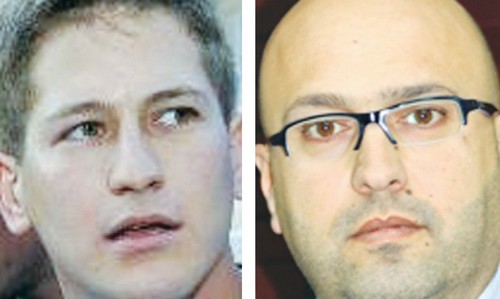OneVoice leaders share prize for peace efforts
Harris, an Israeli, and Makhlouf, a Palestinian, have worked to mobilize the nonviolent, moderate majority leaders within their communities.
 Tal Harris (L) and Samer Makhlouf.(photo credit: ONEVOICE INTERNATIONAL,TWITTER)
Tal Harris (L) and Samer Makhlouf.(photo credit: ONEVOICE INTERNATIONAL,TWITTER)